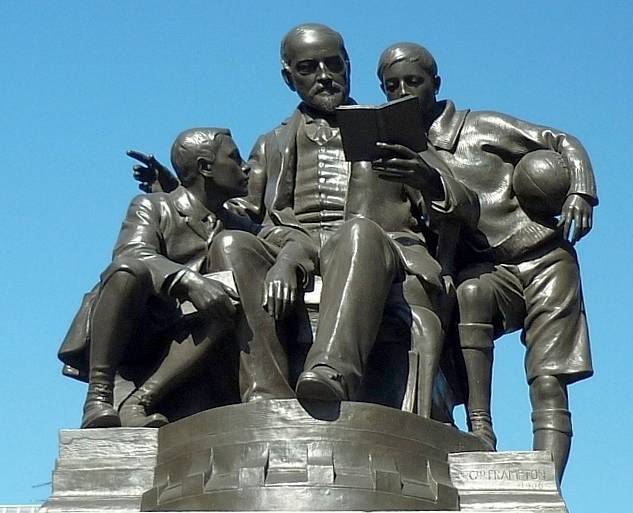
Quintin Hogg (1845-1903) by Sir George Frampton, R.A., P.R.B.S. (1860-1928). Bronze group on a stone pedestal. Inscriptions have been added in memory of Hogg's wife Alice, and of members of the former Polytechnic, founded by Hogg, who died in the First World War. 1906. Langham Place, London W1.
Quintin Hogg, son of the last chairman of the East India Company, was a devout Christian from a wealthy family. Always keenly philanthropic, he set up his first charitable institution, a Ragged School near Charing Cross, soon after leaving Eton. Later he became a prosperous sugar merchant. The Regent Street Polytechnic (now the University of Westminster) that he founded near this memorial in 1881 "became the largest provider of further education in London and inspired the establishment of many other polytechnics"; its sports club also "produced more than fifty Olympic champions" (Bolus and Asprey 166). Frampton shows Hogg reading to two boys, one holding a book as well, the other with a football under his arm — a clear representation of the belief that the mind and the body should be exercised together. The inscription to Hogg's wife (1845-1918) should not be passed over: it says that her "unfailing love & devotion contributed so greatly to the success of the Polytechnic."
Related Material
Photograph and text by Jacqueline Banerjee, 2009. [You may use this image without prior permission for any scholarly or educational purpose as long as you (1) credit the person who scanned the image and (2) link your document to this URL.]
Bibliography
Bollus, Claire, and Ronald Asprey. The Statues of London. London & New York: Merrell, 2009.
Last modified 25 September 2009